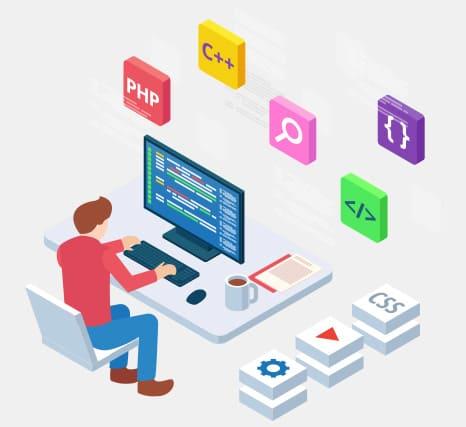The Benefits of Full Stack Development for Modern Web Applications

In today's fast-paced digital world, businesses are constantly seeking ways to stay ahead of the competition and deliver superior web experiences. Full stack development is a powerful approach that offers a comprehensive solution for creating modern web applications. By utilizing Full Stack Development Services, businesses can build robust and scalable applications that cater to their specific needs. In this blog, we'll explore the key benefits of full stack development and how it can enhance your web projects.
What is Full Stack Development?
Understanding Full Stack Development
Full stack development refers to the practice of working on both the front-end and back-end of web applications. A full stack developer has expertise in all layers of the development process, from creating user interfaces (UI) to managing server-side logic and databases. This holistic approach ensures that all aspects of the web application are seamlessly integrated.
Components of Full Stack Development
Front-End Development: Involves creating the user interface and user experience (UI/UX) of the application. This includes designing layouts, developing interactive elements, and ensuring that the application is visually appealing and user-friendly.
Back-End Development: Focuses on server-side logic, databases, and application performance. It involves handling data storage, processing, and integration with various APIs and services.
Database Management: Includes designing and managing databases to store and retrieve application data efficiently. This ensures data consistency and security.
Key Benefits of Full Stack Development
1. Unified Development Process
Streamlined Workflow
Full stack development offers a unified approach to development, where a single developer or team manages both the front-end and back-end. This streamlines the workflow, reduces the need for extensive coordination between different teams, and accelerates the development process.
Improved Communication
With a full stack development approach, communication between front-end and back-end components is more seamless. This leads to fewer misunderstandings and discrepancies, resulting in a more cohesive application.
2. Cost-Effectiveness
Reduced Development Costs
Employing full stack developers can be more cost-effective than hiring separate front-end and back-end specialists. Full stack developers can handle multiple aspects of the development process, reducing overall development costs.
Efficient Resource Utilization
Full stack developers are versatile and can work on various parts of the project, ensuring efficient use of resources and minimizing the need for additional personnel.
3. Faster Time-to-Market
Accelerated Development
Full stack development enables faster development cycles by allowing developers to work on both the front-end and back-end simultaneously. This leads to quicker implementation of features and a shorter time-to-market for your web application.
Agile Development
Full stack development supports agile methodologies, allowing for iterative development and continuous improvement. This flexibility helps in adapting to changing requirements and market conditions.
4. Enhanced Flexibility
Adaptability
Full stack developers can easily switch between different layers of development, making it easier to address issues and implement changes. This adaptability ensures that the application remains flexible and can evolve with changing business needs.
Integrated Solutions
With expertise in both front-end and back-end development, full stack developers can create integrated solutions that work seamlessly together. This results in a more cohesive and efficient application.
5. Comprehensive Problem-Solving
Holistic Approach
Full stack developers have a comprehensive understanding of the entire application stack, allowing them to identify and solve issues from a broader perspective. This holistic approach ensures that problems are addressed effectively and efficiently.
Proactive Troubleshooting
With knowledge of both client-side and server-side technologies, full stack developers can proactively troubleshoot and resolve issues before they impact the end user. This leads to a more stable and reliable application.
Conclusion
Full stack development offers numerous benefits for modern web applications, including a unified development process, cost-effectiveness, faster time-to-market, enhanced flexibility, and comprehensive problem-solving. By leveraging Full Stack Development Services, businesses can create robust and scalable applications that meet their specific needs and drive success in the digital landscape.
FAQs
1. What is full stack development?
Full stack development involves working on both the front-end and back-end of web applications. It encompasses all layers of development, including user interface design, server-side logic, and database management.
2. What are the main benefits of full stack development?
The main benefits include a unified development process, cost-effectiveness, faster time-to-market, enhanced flexibility, and comprehensive problem-solving.
3. How does full stack development reduce costs?
Full stack development reduces costs by allowing developers to handle multiple aspects of the project, reducing the need for separate specialists and ensuring efficient resource utilization.
4. How does full stack development speed up the development process?
Full stack development speeds up the process by allowing simultaneous work on both front-end and back-end components, leading to quicker implementation of features and a shorter time-to-market.
5. Why is adaptability important in full stack development?
Adaptability is important because it allows developers to address issues and implement changes more efficiently. This flexibility ensures that the application can evolve with changing business needs and market conditions.
Also Read : https://www.ditstek.com/
Post Your Ad Here
Comments